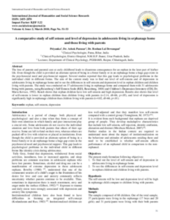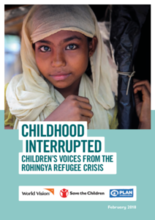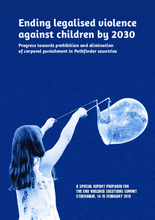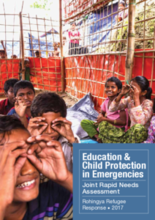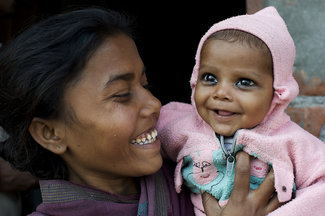

Displaying 401 - 410 of 753
The aim of the current study was to find out level of self-esteem and of depression in adolescents living in orphanage home and to see the differences in self-esteem and depression level in orphan children and children living with parents.
This cross-sectional descriptive study explores the behavioral and emotional problems in institutionalized children in India.
This report presents the results of a consultation - organised by Plan International, Save the Children and World Vision International - which surveyed children in Cox’s Bazar, Bangladesh from refugee communities (who identify themselves as Rohingya) and children from host communities.
UNICEF is seeking a Child Protection Specialist in Nepal.
In this webinar, Yashoda Upreti from Terre des hommes Foundation (Tdh), RISE member in Nepal, will share how the organization uses case management to provide a transparent monitoring and quality control system that facilitates a process to sustain actions to promote child protection, relying on teamwork and a strong child-centered approach.
Prepared for the Agenda 2030 for Children: End Violence Solutions Summit, held in Stockholm, Sweden, on 14-15 February 2018, this report tracks progress towards prohibition and elimination of corporal punishment of children in Pathfinding countries.
An orphanage in Ponnurunni, India has recently come under police investigation for alleged abuse and assault of the children who reside there, according to this article from the Deccan Chronicle.
Police in Kochi, India have launched an investigation into alleged abuse at an orphanage in Ponnurunni after residents staged a protest outside the institution, according to this article from the Hindu.
The main objective of this Joint Rapid Education and Child Protection Need Assessment (JRNA) was to identify education and child protection needs, priorities and capacities of Rohingya boys and girls in the camps, settlements and host community in Cox’s Bazar, Bangladesh to inform and provide the evidence-base for the 2018 Joint Response Plan (JRP).
Two infants born to separate families within minutes of each other in Assam, India were "switched at birth" and handed over to the wrong parents at the hospital where they were both delivered almost 3 years ago, according to this article from the BBC.

